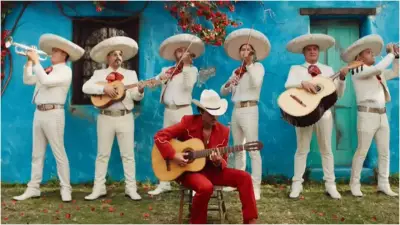
When your father is a cinematic legend whose work has profoundly shaped the art form, how do you pay tribute? For Andrey A Tarkovsky, the answer was clear: become a filmmaker and create a deeply personal film about him. A Cinema Prayer is his moving homage to his father, the revered Russian director Andrei Tarkovsky, whose influence has only magnified since his untimely death from cancer at the age of 54.
A Father's Voice, A Son's Vision
Andrey Tarkovsky began working on the project in 2003, but the film's true shape and soul emerged when he discovered a treasure trove of his father's audio recordings. In these intimate recordings, the senior Tarkovsky speaks candidly about his beliefs, his faith, and his relentless search for truth. Andrey knew he had found the film's heart, incorporating these recordings as an intrinsic element to bring his father as close to the audience as possible, in his own voice.
This approach sets A Cinema Prayer apart from the many existing documentaries, which often lean towards reverence. The film has been showcased on the global stage, including a screening at the Venice Film Festival and, more recently, as a highlight of the just-concluded Dharamshala International Film Festival (DIFF). Andrey's presence and a conversation with DIFF co-founder Tenzing Sonam were a significant draw for audiences at the four-day event.
The Enduring Influence of a Cinematic Giant
In a brief chat, Andrey spoke about the immense impact of his father's work, which extends far beyond filmmaking. "It is a vision of life, of existence," he explained. His father never separated his art from his life; his films were his life. Andrey emphasizes that one does not need to intellectually understand his father's films but rather feel them. He recalls the powerful, unforgettable experience of his first viewing of Stalker, a film that, along with Solaris, reveals a mind deeply engaged with the essence of living, contemplation, and observation.
This artistic vision was forged in a challenging environment. Andrei Tarkovsky's early life included a geological survey in Siberia, searching for gold for the state. This period of hardship was a transformative spiritual and psychological experience that solidified his decision to enter cinema school and become an artist. It also instilled in him a profound love for nature.
Operating under the strict censorship of the Soviet Union, where one could be imprisoned for minor infractions, was incredibly difficult. Yet, even when he later worked in exile, his films never became dark. "They dealt with the most difficult things but there was always a catharsis," Andrey noted. He described this as a very Russian trait—addressing life's fundamental questions through philosophy and a poetic vision.
One Unifying Vision: The Search for Truth
When asked if his father's filmmaking changed in exile, Andrey was definitive. "No. The environment, the location, the actors change but your expression doesn't change." He believes his father made just one film throughout his life, exploring different facets of a single, unifying vision. That vision was a search for truth and God, an attempt to express the perception of the infinite through limited human senses.
Is Andrey continuing this quest in his own work? "I hope so," he said with a laugh. Like his father, he believes this search can be achieved through love and compassion. Andrey, who left Russia as a child, now lives in Italy with his wife, where his father's archives are also housed. However, he maintains strong ties to Russia, where many projects related to his father's legacy are based.
His recent visit to India for DIFF was his second; his first was twenty years ago when he traveled to south India and Kerala to discover Ayurveda and yoga. He revealed that his father was a practitioner of yoga, part of his broader exploration of Orientalist teachings and an attempt to synthesize cultures. "Humans are the same everywhere, so are souls. That's why his films are seen everywhere," Andrey reflected, admiring India's diversity and its "miracle" of unity amidst countless religions, languages, and cultures.
The legacy of Andrei Tarkovsky remains potent, with three of his films—Stalker, Mirror, and Andrei Rublev—featured in the prestigious 2012 Sight and Sound survey of the 100 greatest films of all time. Through A Cinema Prayer, Andrey A Tarkovsky offers a unique and sonically intimate window into the mind and spirit of the man behind these timeless works.






